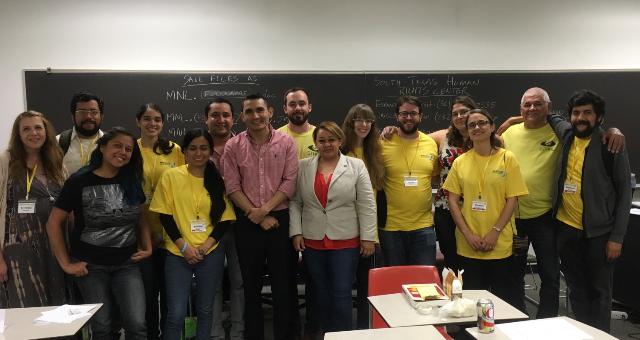Today we were given the opportunity to volunteer at “Missing Persons Day in Harris County”. My role today was to help with the intake. I was one of the volunteers responsible for taking personal information from the families who are missing loved ones. While this event was open to everyone, we were charged with recording information for the people who went missing along the border. I was eager to help, except there was a problem… I don’t speak Spanish particularly well.
I took Spanish in high school, but I feared that my remedial language skills might jeopardize any chance of identifying the missing. Lucky for me I was paired with a native Spanish speaker. I couldn’t have asked to be paired with a better partner. Not only did she translate, but she helped our families to feel welcome and cared for during this incredibly trying experience. She made sure that every member of the family was treated with compassion and respect. She made them laugh, comforted them while they cried, and even played with the children. I cannot express how much I learned from her, and how grateful I am for all of her help.
The intake process started by going over an informed consent form. The form itself was fairly short but was essential. The most important part of the form was the “informed” portion. We spent a lot of time making sure that every detail was combed over, so that the families understood and were comfortable with everything we were doing. Many people were naturally hesitant to sign anything. Many of these families are fearful of police and border patrol, and are understandably reticent. It was important that the families knew how the information collected will be used.
The next step was collecting information about the family members themselves. After that came the difficult part, collecting information about the missing. These questions included where the person was last seen, the clothes that they were wearing, and any information that could help to identify them. The questions themselves were simple, but forced the families to reflect back on their loss. I cannot imagine the pain of reliving the feelings of grief, or the sorrow of not knowing what happened to their loved one. Finally, DNA samples were collected from family members in order to compare them against the different missing and unidentified persons databases.
This event helped me to realize that we are just a very small part of issue that is much, much larger. Our work is important, but is only one cog in the machinations of something meaningful and significant. Even in my modest role, I am proud incredibly proud to play my part.
